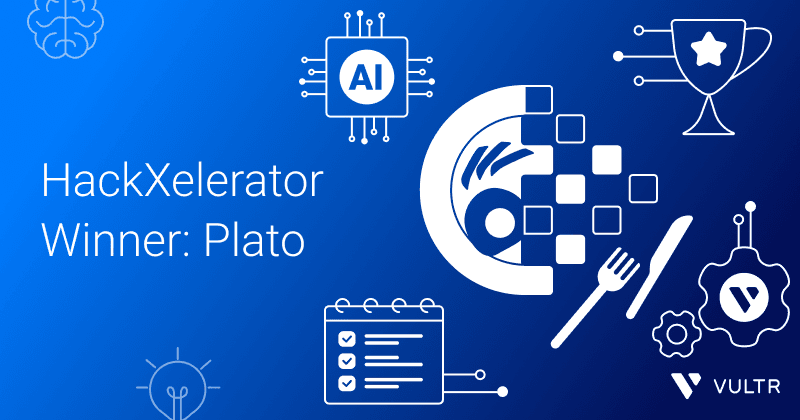At KXSB AI HackXelerator 2025, creatives and technologists from across the globe came together to build AI-powered projects that blend innovation with human-centered design. Plato, the Multi-Model category winner, stood out as a practical and poetic application of AI: a smart cooking assistant that helps users figure out what to eat based on what they have on hand, what they like, and what they need nutritionally.
Led by Peter Bodnar and developed with teammates Zain Rehman, Stefania Liashuk, Hiren Umradia, and Claude, Plato goes beyond basic recipe generation. It’s a multimodal system that understands both text and images, delivering complete, customized meal suggestions through a conversational interface enriched with visuals and videos. The project was guided by a quote from legendary Italian chef Marcella Hazan: “Cooking is art, but you eat it too.” That simple insight became the philosophical foundation for Plato – an elegant fusion of creativity, utility, and sensory experience.
Solving the eternal question: “What’s for dinner?”
Peter discovered KXSB HackXelerator through a local meetup just days before the sprint began. Drawn by the challenge and opportunity, he pitched the idea of a smart kitchen assistant powered by self-hosted AI. The team aligned quickly, driven by a shared desire to “learn hard, have fun, and make something delicious.” From day one, the goal was clear: help people decide what to cook based on the realities of their fridge and pantry, not just idealized recipes.
Plato was built to accept natural language or image inputs. For example, a user could upload a photo of their refrigerator, specify dietary preferences, or dictate, “I want something vegetarian with sweet potatoes.” The system then generates a recipe with ingredients, instructions, and supporting media, including images and video.
A full-stack culinary AI, built in 20 days
Under the hood, Plato is a carefully orchestrated suite of tools and services:
Frontend
- Developed with Next.js and TypeScript
- Accepts user input (speech, text, or image), stores it in Vultr Object Storage
- Interfaces with the backend to retrieve and display recipes and media
Backend
- A Python FastAPI app running in a containerized environment, deployed on a Vultr server
- Uses Hugging Face’s Llama 3.3-70B-Instruct via vLLM and hosted on Vultr server with AMD Accelerator
- Handles recipe generation, media generation with Luma AI, storage, and information retrieval.
Additional services
- Mistral AI for image-to-text conversion
- Luma AI for generating recipe illustrations and videos
- MongoDB for storing data and links
- GitHub for version control, collaboration, and pipelines
While the frontend handled user interaction, the backend was the culinary brain, generating not just text but rich media to match. The entire flow – from image upload to video output – was designed for relevance, creativity, and delightful experience.
Tight timelines, technical hurdles, and team resilience
Working across time zones, the Plato team embraced asynchronous collaboration. They applied agile development practices, shipping early and iterating quickly. Still, the compressed timeline brought real technical challenges. One recurring issue was debugging silent API failures from LLMs, especially when working with large payloads and unclear error handling.
It took trial and error, creative workarounds, and mentor support to keep the pipeline running smoothly. Vultr’s Mayank Debnath was key in helping the team configure their backend servers, ensuring fast and reliable infrastructure, and keeping the project on track. Peter said, “This project only worked because every part of the stack came together. Vultr made the infrastructure side seamless.”
A prototype with real potential
The final version of Plato delivered on its promise: a smart assistant that understands your needs and returns a complete meal plan with visuals and video, all generated by AI. It’s not just a tool – it’s an experience that could easily be integrated into smart kitchen displays or recipe platforms.
Peter and the team see Plato as more than a hackathon project. The next steps include refining the user experience, researching target users, and developing a more robust backend to support scale. “I want to find the right way of working, understand the product market fit, and see where this could go,” he said. With the right focus and continued iteration, Plato could evolve into a widely used kitchen companion, transforming what it means to cook with a dash of AI help.

